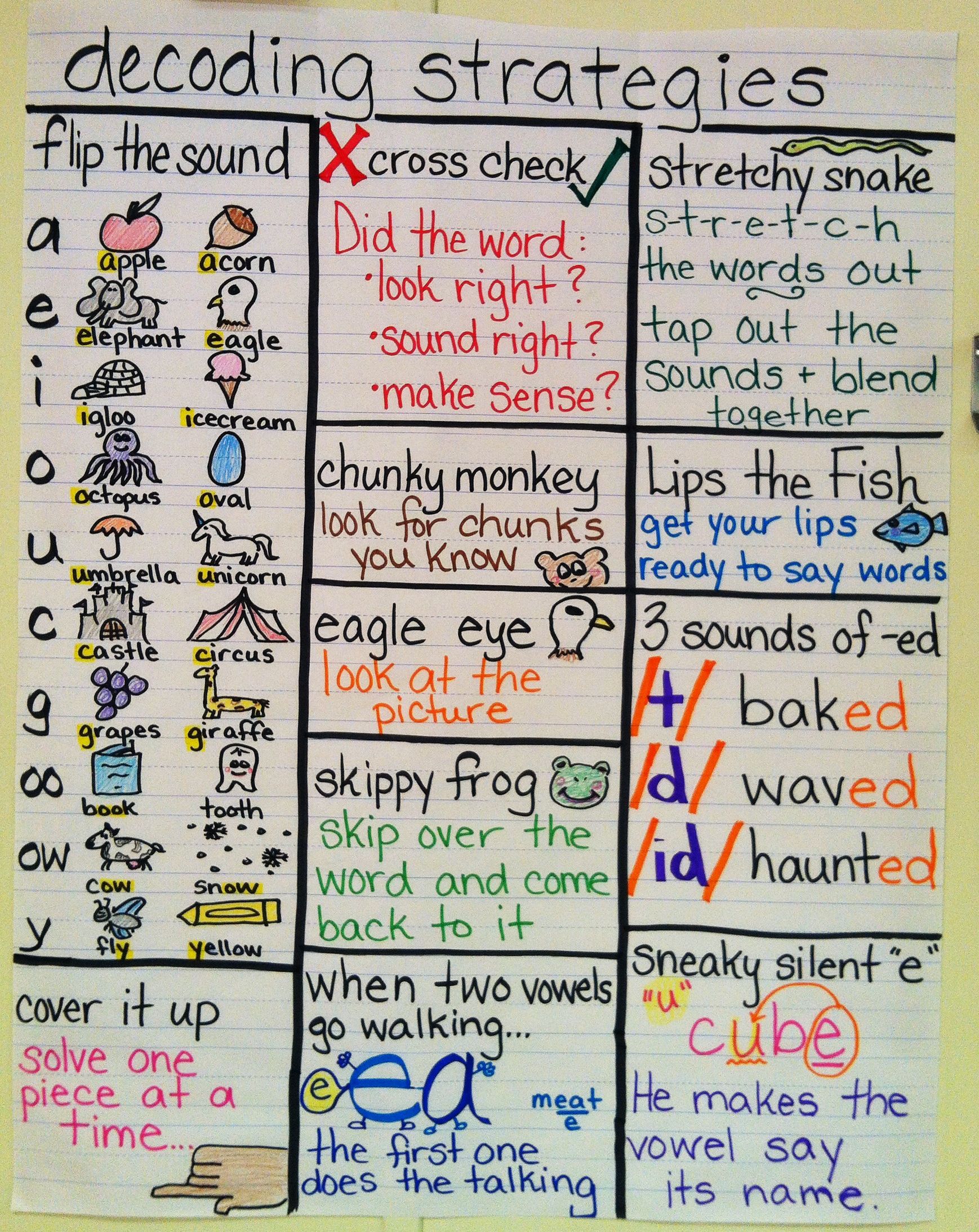Web 17 effective decoding strategies and activities for emerging readers 1. Web home in the classroom classroom strategy library welcome to our strategy library! See also 7 strategies for using. Web at a glance decoding is a key skill for learning to read. The first thing to keep in mind is the importance of a.
Her model comprises three stages of decoding development: Recognizing familiar word parts to help pronounce a word. Phonics is a key part of decoding, and there are so many fun activities kids can do to learn. A big part of learning to read is learning to “sound out” words that don’t look familiar. It’s sometimes called “sounding out” a printed word.
First, we know it works to systematically and explicitly teach kids to hear and work with the phonemes, or individual sounds, within words. Readers use decoding to “sound out” words they don’t recognize. In the beginning stages, one learns to decode words using the connection between sound and symbol in the brain’s dorsal stream. Her model comprises three stages of decoding development: What kids can do to help themselves.
Web decoding skills relies on early language skills called phonemic awareness and involves learning how sounds are linked to letters and letter combinations in the written language. Web in reading decoding, readers sound out words by pronouncing their parts and then joining those parts to form words. What kids can do to help themselves. Putting sounds together in a word. A big part of learning to read is learning to “sound out” words that don’t look familiar. What they are and why they matter families help kids “crack the code”, too 5 tips for parents to build decoding skills at home grow students’ decoding skills in reading — anytime, anywhere Many of the strategies support collaborative learning and give your students a chance to work independently and in small groups. Web home in the classroom classroom strategy library welcome to our strategy library! But the fastest way to read a word is by sight, which is important for reading fluency and comprehension. Web skills used in word decoding include: Readers use decoding to “sound out” words they don’t recognize. Recognizing familiar word parts to help pronounce a word. Web teaching decoding strategies to our students is crucial to their learning to read and finding success. Within the last two decades, significant progress has been made in determining the most effective strategies for reading instruction. Web there are “fast” and “slow” routes for reading in the brain.
Below Are Some Tips And Specific Things To Do.
Readers use decoding to “sound out” words they don’t recognize. Web decoding strategies the definition of decoding is the process of breaking a written word down to its individual parts and determining the word’s pronunciation based on the common sound/letter patterns of english. Web 6 effective decoding strategies for beginning and struggling readers teaching decoding skills. Web decoding skills relies on early language skills called phonemic awareness and involves learning how sounds are linked to letters and letter combinations in the written language.
Web There Are “Fast” And “Slow” Routes For Reading In The Brain.
Being able to decode quickly and accurately leads to improved fluency and comprehension too! See also 7 strategies for using. These strategies will help your beginning readers decode new words while reading! Web in today's post i'll cover how to teach decoding strategies to struggling readers.
Web 17 Effective Decoding Strategies And Activities For Emerging Readers 1.
Web these 5 decoding strategies are helpful for children learning to read. Web the science of reading clearly points to how teachers can best support the earliest stages of decoding. Science of reading strategies the beanie baby decoding strategies are very popular but can teach students to guess a word. Web 5 strategies that boost decoding skills in reading at home science of reading by maren madalyn, contributing writer in this article decoding skills:
Web Teaching Decoding Strategies To Our Students Is Crucial To Their Learning To Read And Finding Success.
First, we know it works to systematically and explicitly teach kids to hear and work with the phonemes, or individual sounds, within words. What kids can do to help themselves. Web · build a strong foundation for phonological awareness first. Web strategies that improve decoding and reading comprehension skills benefit every student, but are essential for beginning readers, striving readers, and english language learners.









